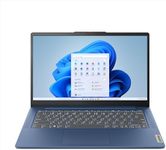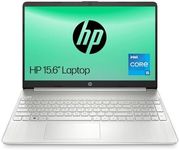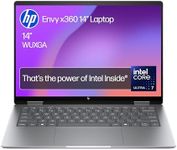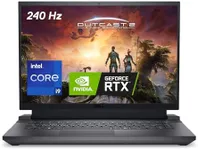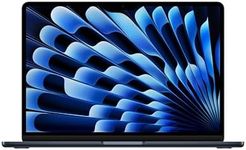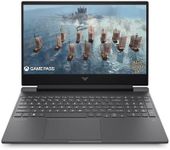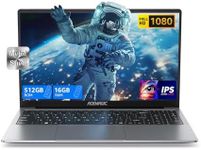Buying Guide for the Best Engineering Laptops
Choosing the right engineering laptop is crucial for ensuring that you have the power and capabilities needed to handle demanding tasks such as 3D modeling, simulations, and running complex software. When selecting a laptop for engineering purposes, it's important to focus on specifications that will support these activities efficiently. Consider your specific field of engineering, as different disciplines may have varying requirements. For instance, a civil engineer might need different software and capabilities compared to a software engineer. Always aim for a balance between performance, portability, and durability to suit your work environment and lifestyle.Processor (CPU)The processor, or CPU, is the brain of your laptop and is crucial for handling complex calculations and multitasking. For engineering tasks, a powerful processor is essential to ensure smooth performance when running demanding software. CPUs are typically divided into segments like i5, i7, and i9 for Intel, or Ryzen 5, 7, and 9 for AMD. For most engineering applications, an i7 or Ryzen 7 is a good starting point, offering a balance of performance and efficiency. If your work involves heavy simulations or 3D rendering, consider an i9 or Ryzen 9 for even greater power. Choose based on the intensity of your tasks and the software requirements.
Graphics Card (GPU)The graphics card, or GPU, is responsible for rendering images and videos, which is particularly important for tasks involving 3D modeling and simulations. A dedicated GPU is often necessary for engineering students and professionals who work with CAD software or other graphics-intensive applications. GPUs are categorized by their performance levels, such as entry-level, mid-range, and high-end. For basic engineering tasks, a mid-range GPU should suffice, but for more demanding graphics work, a high-end GPU will provide better performance and faster rendering times. Consider the software you will be using and its graphics requirements when choosing a GPU.
RAMRAM, or Random Access Memory, is crucial for multitasking and running large applications smoothly. It temporarily stores data that your computer is currently using, allowing for quick access and efficient processing. For engineering laptops, a minimum of 16GB of RAM is recommended to handle multiple applications and large files simultaneously. If you work with particularly large datasets or complex simulations, 32GB or more may be necessary. Consider your typical workload and the software you use to determine the right amount of RAM for your needs.
StorageStorage is where all your files, applications, and operating system are kept. For engineering laptops, having fast and sufficient storage is important to quickly access and save large files. Solid State Drives (SSDs) are preferred over traditional Hard Disk Drives (HDDs) due to their faster read and write speeds, which significantly improve overall system performance. A minimum of 512GB SSD is recommended for engineering tasks, but if you handle very large files or need to store a lot of data, consider 1TB or more. Evaluate your storage needs based on the size and number of files you typically work with.
DisplayThe display is important for viewing your work clearly and comfortably. For engineering tasks, a high-resolution display is beneficial for detailed work, such as CAD designs or complex diagrams. Look for a Full HD (1920x1080) resolution at a minimum, but a 4K display can provide even more clarity if your work demands it. Screen size is also a consideration; a 15-inch display offers a good balance between portability and screen real estate, while a 17-inch display provides more space for multitasking and detailed work. Choose based on your preference for portability versus screen size and clarity.
Battery LifeBattery life is an important consideration if you need to work on the go or in locations without easy access to power outlets. Engineering tasks can be power-intensive, so a laptop with a long battery life is beneficial. Battery life can vary widely, with some laptops offering as little as 4 hours and others up to 10 hours or more. Consider how often you will be away from a power source and choose a laptop with a battery life that suits your mobility needs. Keep in mind that more powerful components can drain the battery faster, so balance performance with battery efficiency.
Build Quality and DurabilityEngineering laptops should be durable enough to withstand frequent use and transportation. Build quality is important to ensure the laptop can handle the rigors of daily use, especially if you travel or work in different environments. Look for laptops with sturdy materials like aluminum or magnesium alloy, which offer better protection than plastic. Additionally, consider features like spill-resistant keyboards and reinforced hinges for added durability. Choose a laptop that matches your lifestyle and work conditions, ensuring it can withstand the demands of your engineering tasks.
